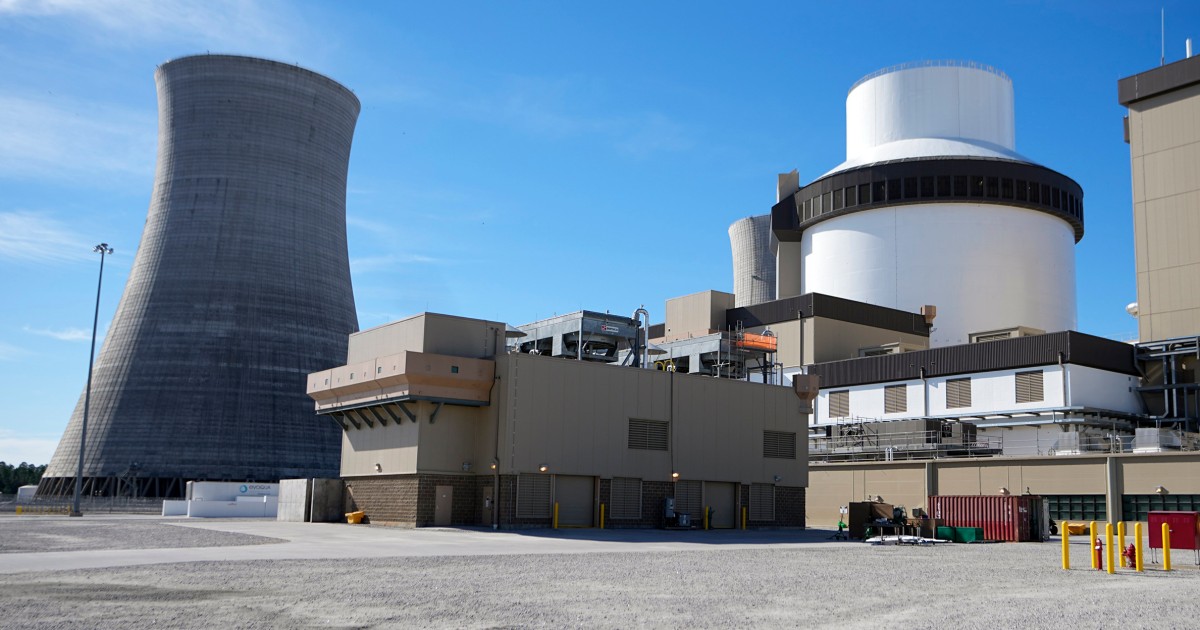First U.S. nuclear reactor built from scratch in decades enters commercial operation in Georgia::ATLANTA — A new reactor at a nuclear power plant in Georgia has entered commercial operation, becoming the first new American reactor built from scratch in decades.



I would be very interested to know why the trend has moved away from building reactors in time and within a reasonable budget. It seems that most projects after the turn of the millennium haven’t been cost effective.
Why did we manage to build reactors well before but not now?
Every year a reactor operates is a year of experiencing new ways they suck. The fixes and added complexities are rolled into the next reactor.
Thr grifters running the show also learn new ways to grift, so the small new delays and costs are amplified.
For older reactors the costs this imposes are rolled into operational budgets (and more often than not reactors are closed as unprofitable and the public or ratepayers are left holding the bag).
Additionally regulatory agencies keep finding new instances of fraud, stopping these adds costs to the regulator and regulatee.
This has happened since well before three mile island, so all misdirections to “scare mongering about meltdowns” are lies (the rate of cost escalation actually slowed significantly after three mile island).
Chernobyl and Fukushima. These two events, which between them account for a few thousand deaths at most (compared with the tens of thousands of deaths caused by coal in Europe alone, for example), triggered a panic fear of nuclear power.
For decades, the nuclear industry has been abandoned and sabotaged, with projects such as Phénix, Superphénix and Astrid in France, and virtually all new reactor projects, cancelled due to anti-nuclear opposition.
Competent nuclear engineers and technicians have retired without being able to pass on their know-how, and cutting-edge nuclear-related industries have disappeared or been converted.
We can also thank the Germans for sabotaging the EPR. We started the project together, they forced us to add a lot of totally unjustified redundancies and safety features that made the prototype very complex and therefore costly to build, and then they slammed the door on us.
This same fear has been enough to fund SLS and Ariane programs. Basically to avoid the loss of a capability in case it’s needed later on. For some reason it doesn’t seem to apply to nuclear. And now people are complaining that building new reactors is expensive, arguably at least partially due to the supply chains no longer existing in the same scale as before.
If loss of expertise were the cause, then there would have been a cost minimum in the late 80s when the maximum number of engineers had 5-15 years of experience.
Instead costs rose for each new reactor (including repeat builds of each model).
This theory has no explanatory power over reality and predicts the opposite of what happened.
Should the delays and subsequent costs overruns then be simply attributed to increased regulatory complexity or corporate greed?
I’m looking at the list of reactors in France, most of the builds during the last millennium were completed in more or less 10 years. Then there was a gap, and the new one is taking way longer than previous ones.
Same thing has happened in many other countries. Including finland, where at first we got 4 reactors in 6-10 years, and then after a gap of 25 years the next reactor was a clusterfuck that took almost 20years to build.
Both of these reactors are of the same design, and the issues are at least partially attributed to the company having forgot how to manage such large projects due to the years long gap in construction.
Part is the neoliberal economic model is really really bad at big projects. Part is the regulations and engineering complexity involved in not having them all shut down because they caught fire or the steam generators corroded (almost every program has “cheap” reactors at the beginning which have massive maintenance issues and leaks 10-30 years later, followed by expensive ones with massive delays). Part is corporate greed. Part is revealing and stopping rampant fraud and finding safety-compromising cost-cutting measures. Part is the lack of pressure from the military to make it happen as there is no longer a need for as much Plutonium. Part is that there actually are some semblance of environmental laws. Part is the fossil fuel industry interfering (as they do with all non-fossil-fuels).